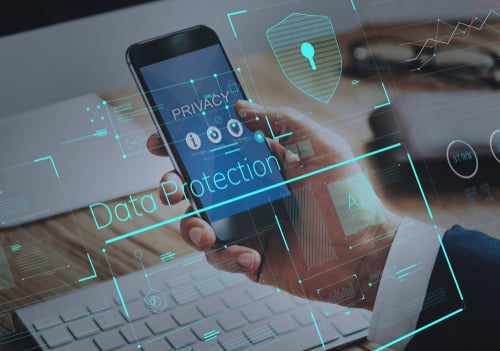June 19th, 2023 / By: dojo.live / Published in: Blog

Centralized identity systems are vulnerable to many issues, such as constant attacks, data breaches, slow verification, and fraudulent activity. Malicious parties can easily fake credentials, leading to devastating consequences, while legitimate parties can get bogged down in bottlenecks created by manual verification systems. Decentralized identity, and decentralized identifiers (DID), enter as a verifiable cryptographic alternative to address these challenges, and many more, that centralized identity systems present.
Encora created this guide to define decentralized identity, explain how it works, describe three major applications, and outline the benefits it unlocks.
What is decentralized identity?
In the context of trust frameworks, which provide entities with clear and agreed-upon standards for authenticity, decentralized identity is an identity management solution that allows individuals to control their digital identity without relying on a specific service provider for mediation. A digital identity is information about an individual, entity, or device that lives online and can include search history, usernames and passwords, licenses, degrees, social security numbers, and more. Decentralized identity can be used to issue and verify IDs, fraud-proof certificates and degrees, and licenses.
How does decentralized identity work?
Decentralized identity systems rely upon the following four key elements:
- A decentralized, blockchain-based database that records information in a manner that is difficult to forge, hack, or change.
- A decentralized identity wallet app allows users to store, control, and manage their credentials.
- A unique identifier in the blockchain, also known as a decentralized identifier (DID), contains details like verification information and the public key.
- A verifiable credential (VC) is a cryptographically secure paper and digital credential record individuals can present to entities, like employers or education institutions, upon request.
Applications of Decentralized Identity
Decentralized identity applies to many sectors and use cases. Here are three examples:
Healthcare
Hospitals and other medical centers can quickly, efficiently, and accurately verify applicants’ credentials to ensure all new hires have legitimate experience and licensing. Decentralized identity can free up the staffing bottlenecks created by the slow, manual processes of verifying identity and credentials. Applicants can control the data they share and only share what is necessary for the hiring process.
Government
Benefits programs, social services, licensing boards, and many other government sectors and agencies can streamline application processes by adopting decentralized identity verification. Applicants can select and share only the information that needs to be shared, and the government can immediately verify the trustworthiness and accuracy of the information provided. This can reduce overall processing time from weeks to hours or minutes and nearly eliminate any fraudulent activity.
Education
Education institutions and training centers can streamline applications, credentialing, and degree awarding processes with decentralized identity. If decentralized identity is used for the application process, applicants and organizations can benefit from the expedited processing time and secure transfer of information. Education institutions and training centers can also rely upon decentralized identity to issue certificates and degrees and ensure they are fraud-proof.
Benefits of Decentralized Identity
Decentralized identity is beneficial to individuals, developers, and companies or institutions. There are many advantages each of these three parties can leverage:
How Individuals Benefit from Decentralized Identity
- Maintain full ownership and control over personal data.
- Prove credentials and identity without having to rely upon a third party.
- Selectively determine the parties who gain access to information.
- Prevent the risk of identity or credential theft.
- Prevent dissemination of data without consent.
How Developers Benefit from Decentralized Identity
- Enable the creation of user-centric apps that have a streamlined authentication process.
- Allow for safe use of data.
- Increase trustworthiness and user experience of apps and web-based solutions.
How Companies and Institutions Benefit from Decentralized Identity
- Allows for immediate information verification without delays caused by traditional verification processes that require contact with the issuing party.
- Prevents fraud and the potential dangers that could result from trusting fake credentials.
- Improves security through the use of public keys that encrypt and decrypt information.
- Minimizes the amount of data entities have to store, which saves space and reduces the likelihood of being targeted by a cyber attack.
Decentralized Identity and Encora
Companies ready to leverage decentralized identity can contact Encora for support. Encora is a digital engineering services company specializing in next-generation software, digital product development, advanced digital strategy, market activation solutions, and cutting-edge technology practices. Encora’s software engineers are well-versed and highly skilled in decentralized identity across a wide range of industries. Furthermore, Encora is deeply expert in the various disciplines, tools, and technologies that power the emerging economy, and this is one of the primary reasons that clients choose Encora over the many strategic alternatives available.
Contact us to learn more about decentralized identity and our advanced software engineering capabilities.